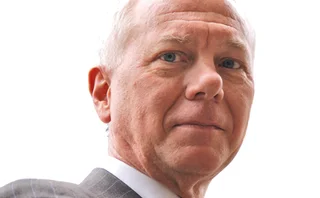
IMF, EU and World Bank feed cash-starved Hungary
The International Monetary Fund, the European Union (EU), and the World Bank will provide a $25.1 billion financing package for Hungary to support its ailing economy.
This is the third rescue package instigated by the IMF for a sovereign since the start of the financial crisis. The financial support for Hungary follows commitments made last week to help Iceland and Ukraine, of $2.1 billion and $16.5 billion respectively. The fund is also in talks to grant financial assistance to Pakistan.
"The Hungarian authorities have developed a comprehensive policy package that will bolster the economy's near-term stability and improve its long-term growth potential. At the same time it is designed to restore investor confidence and alleviate the stress experienced in recent weeks in the Hungarian financial markets,” said Dominique Strauss-Kahn, managing director of the IMF.
The package includes steps to maintain adequate domestic and foreign currency liquidity, as well as strong levels of capital, for the banking system.
Hungary’s currency and stock markets have plunged this month. Investors have withdrawn money from the country as a result of growing fears over the financial strength of the country, and in particular its banks.
Hungary’s forint depreciated to 218.54 against the dollar on October 23 from 172.02 at the start of the month. It had rebounded slightly since to 210.35 on October 28. Meanwhile, the Budapest stock exchange crashed to 10,751.23 on October 27 from 18,868.9 at the start of the month. It stood at 11,744.75 on October 28.
Rating agency Standard & Poor’s placed the country’s BBB+ sovereign credit rating on review for downgrade on October 15.
"This action reflects our concerns over mounting financial-sector funding pressures and their potential to raise general government debt materially from its current level of 67% of GDP," explained Standard & Poor's Frankfurt-based credit analyst Kai Stukenbrock. "Domestic and foreign-owned banks are facing sharply higher financing costs and reduced access to international markets."
See also: Risk USA: IMF unveils dire global economic outlook for 2009
IMF: European regulators are making the downturn worse
Only users who have a paid subscription or are part of a corporate subscription are able to print or copy content.
To access these options, along with all other subscription benefits, please contact info@risk.net or view our subscription options here: http://subscriptions.risk.net/subscribe
You are currently unable to print this content. Please contact info@risk.net to find out more.
You are currently unable to copy this content. Please contact info@risk.net to find out more.
Copyright Infopro Digital Limited. All rights reserved.
As outlined in our terms and conditions, https://www.infopro-digital.com/terms-and-conditions/subscriptions/ (point 2.4), printing is limited to a single copy.
If you would like to purchase additional rights please email info@risk.net
Copyright Infopro Digital Limited. All rights reserved.
You may share this content using our article tools. As outlined in our terms and conditions, https://www.infopro-digital.com/terms-and-conditions/subscriptions/ (clause 2.4), an Authorised User may only make one copy of the materials for their own personal use. You must also comply with the restrictions in clause 2.5.
If you would like to purchase additional rights please email info@risk.net
More on Economics
Webinar – Nowcasting the US economy
Join CME Group Chief Economist, Blu Putnam, as he shares insights using alternative data and nowcasting to monitor developments in the US economy.
Fed Funds Futures in a Post-ZIRP World
As the FOMC returns to more active management of its key target rate, Federal Funds futures have experienced dramatic growth.
Challenging economic pessimism: an optimistic note
A contrarian, upbeat view of the long-term economic outlook
Economists, like hedge fund traders, need open minds
Economists, risk managers and traders must learn the lessons of crisis, says Kaminski
Fed wrong not to start QE tapering, says UBS economist
The surprise decision by the Federal Reserve last month not to scale back its quantitative easing programme will create more volatility, says economist
IMF's Blanchard warns Europe could drag world economy down
IMF chief economist says ‘three-speed’ global economy could be dangerous







